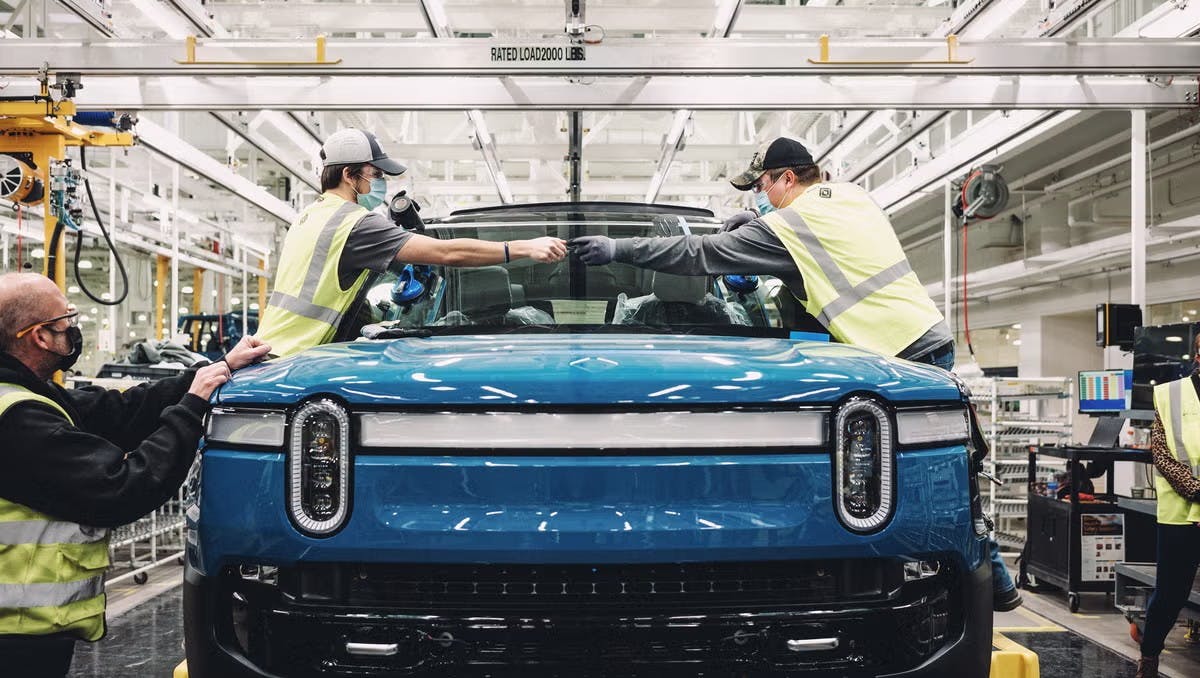
Billion-Dollar Buddy System: Volkswagen & Rivian
Volkswagen and Rivian, two prominent names in the automotive industry, are joining forces to accelerate electric vehicle (EV) technology. In a recent announcement on November 13, 2024, Volkswagen revealed it would increase its investment in Rivian to $5.8 billion, up from a previously pledged $5 billion, securing a 50% stake in a new joint venture: Rivian and VW Group Technology. This venture is set to innovate on the future of EVs, with a strong initial focus on software development and plans to expand into hardware.
A Strategic Alliance: Addressing Shared Needs
Volkswagen, a giant in automotive manufacturing, and Rivian, an EV pioneer, both stand to gain substantial benefits from the joint venture. Volkswagen, which has historically excelled in mass production and vehicle hardware, has sought to strengthen its software capabilities as the automotive world shifts toward digital solutions. Meanwhile, Rivian, despite early success and accolades for its electric trucks and SUVs, has faced challenges in scaling production and improving profitability. The cash infusion from Volkswagen will allow Rivian to progress toward profitability and launch new models, while Volkswagen will gain access to Rivian’s advanced EV software architecture.
Rivian and VW Group Technology: A New Joint Venture
The newly established venture, Rivian and VW Group Technology, will be headquartered in Palo Alto, California—a location symbolic of its mission to develop next-generation EV software and architecture. Initially, the focus will be on advancing software technology, aiming to integrate sophisticated EV operating systems and connected features. Volkswagen’s CEO, Oliver Blume, confirmed that while the immediate focus is software, there is potential for the partnership to extend into the production of hardware components, including battery modules.
Blume’s statements point to an evolving partnership model, where both companies may leverage their strengths to create a new EV platform that supports diverse vehicle models and ranges across global markets. In addition, Rivian’s R1T electronic architecture could find its way into Volkswagen’s vehicles, signaling a shift toward cross-brand compatibility and innovation.
Cash Influx and Manufacturing Expertise: Vital to Rivian’s Growth
For Rivian, the financial boost from Volkswagen could not come at a more opportune time. The company has faced hurdles in expanding its production capacity, and just this past March, it paused construction on a $5 billion factory in Georgia to conserve funds. The additional investment from Volkswagen will help stabilize Rivian’s financial footing and support the launch of its upcoming R2 SUV, which is expected to start at a competitive price of $45,000.
Rivian’s founder and CEO, R.J. Scaringe, highlighted the significance of this partnership, stating that the financial support and manufacturing guidance from Volkswagen are instrumental in the company’s continued growth. This collaboration also grants Rivian access to Volkswagen’s vast production expertise—Volkswagen, the second-largest automaker globally, manufactured roughly 57,000 vehicles in just one week in 2023, compared to Rivian’s projected annual sales goal of 57,000 vehicles in 2024.
Volkswagen’s Strategic Investment: Strengthening Its EV Roadmap
Volkswagen’s decision to deepen its stake in Rivian is a calculated move within a competitive EV market where software and integrated technology are increasingly important. By investing in Rivian, Volkswagen not only enhances its EV lineup but also secures a foothold in Silicon Valley, a critical hub for tech-driven innovation. The collaboration with Rivian is poised to help Volkswagen address software challenges, positioning it to compete more directly with industry leaders who have invested heavily in EV software ecosystems.
The joint venture with Rivian will also enable Volkswagen to tap into the existing compatibility between its vehicles and Rivian’s technology, potentially allowing for smoother integration of Rivian’s electronic architecture in Volkswagen’s EVs. This approach represents a smart blend of innovation and pragmatism, as it aligns with Volkswagen’s broader strategy to become a leader in the EV space.
Regulatory Approvals: A Path to Expansion
For this deal to move forward, regulatory approval will be essential. Should it be approved, the partnership will mark a significant milestone in the EV industry, bringing together Volkswagen, with its extensive production capabilities, and Rivian, a company at the forefront of EV software design. Notably, this move would also make Volkswagen a substantial shareholder in Rivian alongside Amazon, which has invested heavily in the startup.
Looking Forward: The Future of Rivian and VW Group Technology
Volkswagen’s strengthened investment in Rivian represents more than a simple cash infusion. It’s a strategic collaboration designed to future-proof both companies in an industry undergoing rapid transformation. By combining Volkswagen’s manufacturing experience with Rivian’s innovative EV technology, this joint venture promises to drive the development of versatile, efficient, and consumer-friendly electric vehicles.
The partnership may pave the way for further advancements in both hardware and software, including breakthroughs in battery technology and autonomous driving. As Rivian and VW Group Technology take shape, consumers can expect new EV models that incorporate cutting-edge tech at accessible prices.
With headquarters in Silicon Valley and a vision for collaboration, Rivian and VW Group Technology is poised to make waves in the industry, fostering a more sustainable, tech-forward future in electric mobility. This venture signifies a crucial moment for both companies, with their combined expertise likely setting new standards in EV technology and reshaping the electric vehicle landscape for years to come.

 Volkswagen ID.4
Volkswagen ID.4